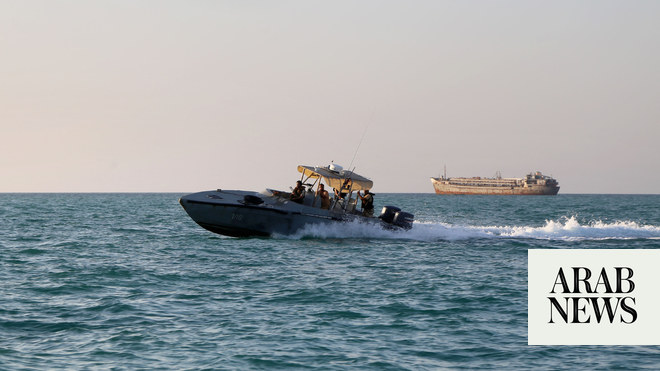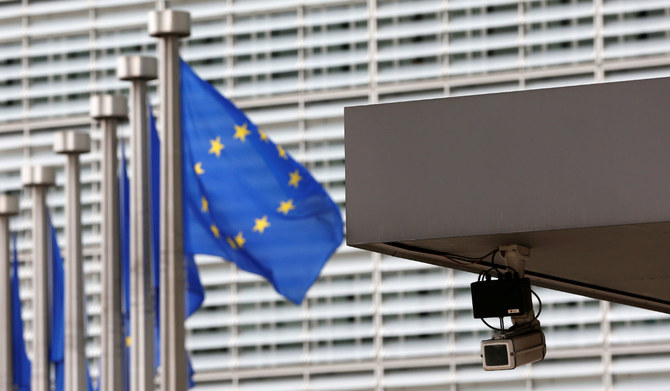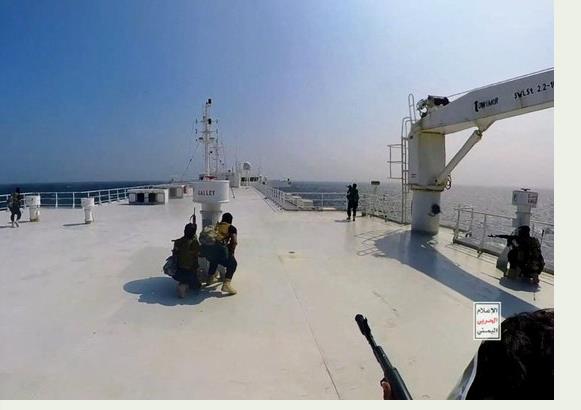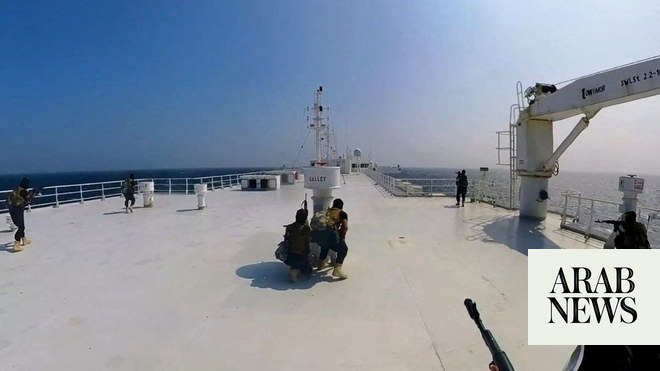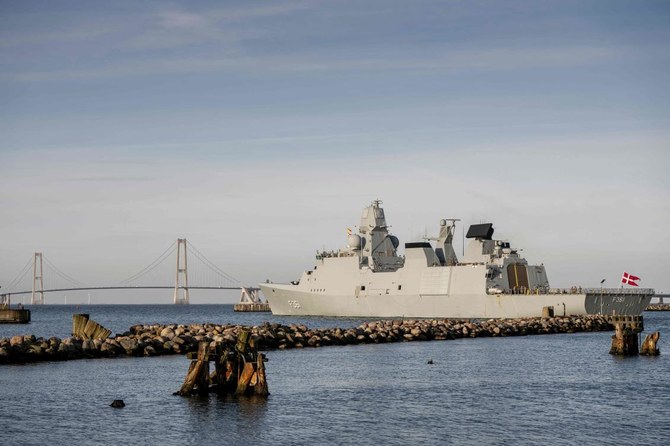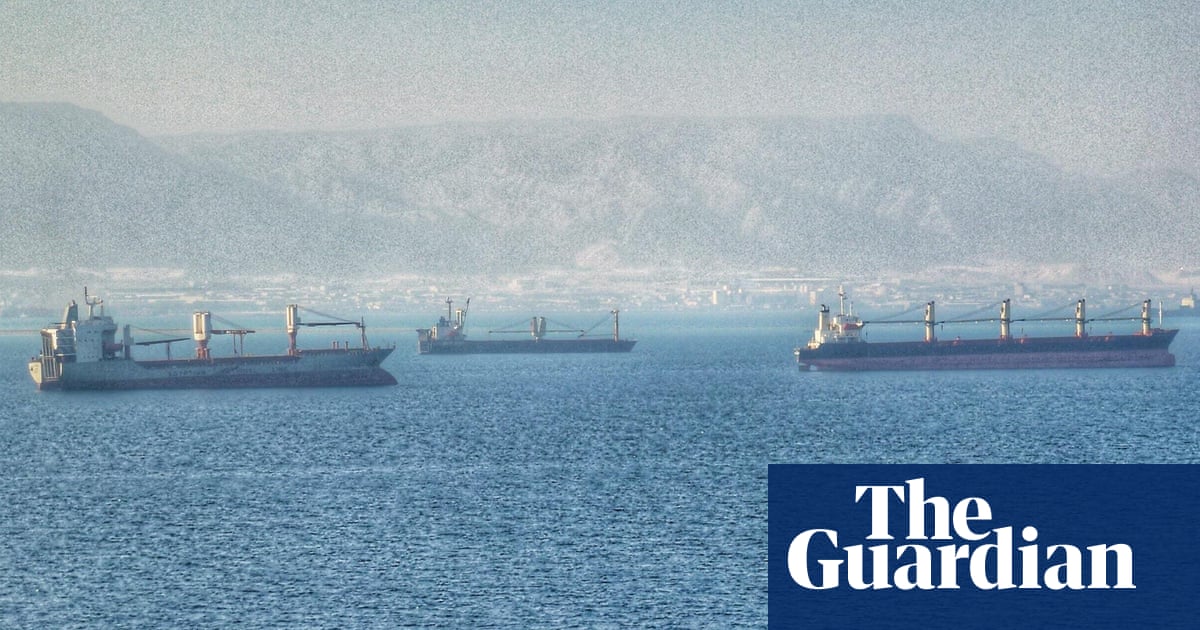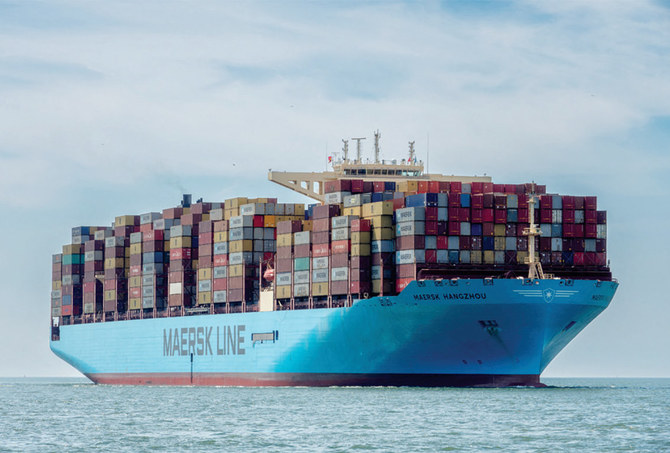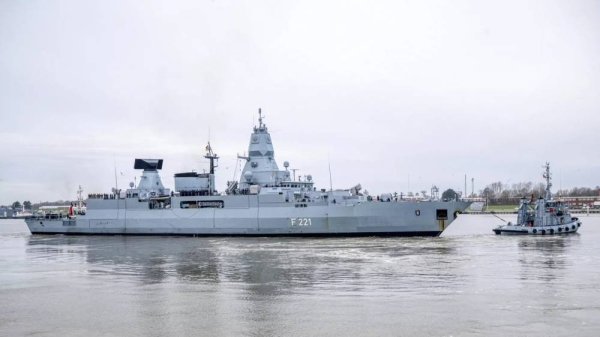
The European Union on Monday formally launched a bespoke naval mission to protect commercial vessels in the Red Sea from attacks by Houthi rebels.
Mission ‘Aspides’ — Greek for shield — will aim to preserve freedom of navigation in the Red Sea and the Gulf of Aden, a region plagued with instability since October when Houthi rebels began targeting vessels navigating the waterway with a barrage of drone and rocket attacks.
The Houthis, an Iran-backed rebel group that controls a part of Yemen, say their attacks are in retaliation for Israel’s war in Gaza that has so far claimed the lives of some 29,000 Palestinians.
With 12% of global trade and as much as 30% of global container traffic passing through the vital waterway, their strikes have threatened to severely disrupt trade flows into Europe.
France, Germany, Italy and Belgium have so far confirmed they plan to contribute ships to the EU mission. Greece will provide a commander for its operational headquarters, Italy will provide the force commander, and France the deputy force commander.
The bloc"s top diplomat Josep Borrell described the mission as "bold action to protect the commercial and security interests of the EU and the international community."
"Beyond crisis response, it"s a step towards a stronger European presence at sea to protect our European interests," European Commission President Ursula von der Leyen said on social media platform X.
A senior EU diplomat said that Apsides has an exclusively "protective" mandate and will "only act when there is a threat, with minimum force."
He added that the mission will have at least four frigates and will be fully operational in a "few weeks’ time."
The operation headquarters will be located in Larissa, Greece, and will work hand in hand with "like-minded partners" already present in the region.
EU nations had been reluctant to back Operation Prosperity Guardian (OPG), the US-led naval mission launched in December, for fears the bloc would be contributing to an escalation in the conflict that has gripped the Middle East.
OPG originally enlisted the support of six EU member states, three of which then distanced themselves from the mission.
The US and the UK have since led retaliatory strikes against Houthi targets on Yemeni territory, but the European bloc has distanced itself from such military action.
"We will not be offensively neutralizing a threat on land," a second senior EU diplomat said. "The rules of operation are strictly self-defense."
Some EU member states, such as Denmark and the Netherlands, had contributed to the US and UK-led military action on land in Yemen, supporting greater EU engagement in the region to protect European security and interests.
Other member states, notably Spain, had favoured a more defensive posture and vetoed plans to repurpose the EU’s Atalanta anti-piracy mission to the region.
The launch of the EU mission comes following a respite in the Houthi"s attacks, which peaked in January this year and saw Tehran move its own frigate into Red Sea waters in a sign of escalating tensions.
There have been signs of a pick-up in Houthi activity in recent days, with a Belize-flagged ship attacked Monday, hours after the US military said it had struck an unmanned underwater vessel deployed by the Houthis.
Whilst the Houthis originally claimed their attacks were targeted at Israeli-owned ships, many European-operated vessels have come under fire over the past four months.
It prompted many major shipping firms to avoid the area, opting instead for the alternative detour around the Cape of Good Hope and adding as much as a month of journey time.
This sparked fears delays and added costs could have a knock-on effect on Europe"s economy, with European Commissioner for the Economy Paolo Gentiloni warning in January of a potential spike in energy prices in Europe, unless shipping firms were provided defence reassurances.
A senior EU diplomat claimed the bloc had been able to agree and launch the mission swiftly to address the threat to trade flows, despite continued rifts between the stances of EU member states on the conflict in the Middle East. — Euronews




